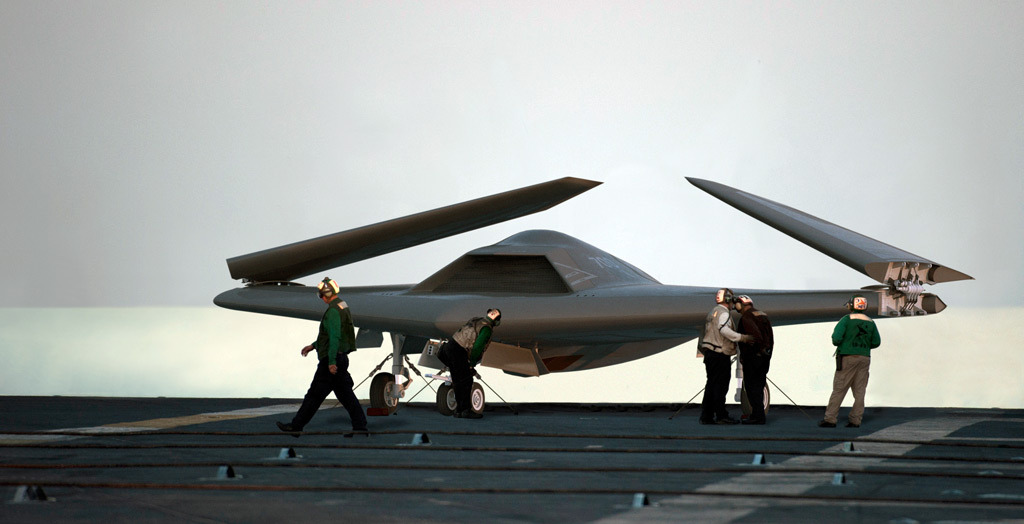
Despite a Congressional push to stall the Navy’s next generation carrier-based unmanned aerial vehicle (UAV), Naval Air Systems Command (NAVAIR) plans to issue a full request for proposal (RFP) for the Unmanned Carrier Launched Airborne Surveillance and Strike (UCLASS) in July.
Rear Adm. Mat Winter, NAVAIR’s program executive officer for unmanned aviation and strike weapons, told attendees at the Association for Unmanned Vehicle Systems International Unmanned Systems 2014 conference the final RFP would be issued following an industry day with the four companies that have participated in the draft RFP process — General Atomics Aeronautical Systems, Boeing, Lockheed Martin and Northrop Grumman.
NAVAIR’s move comes as the House Armed Service Committee (HASC) included language in the current draft of the National Defense Authorization Act (NDAA) bill for Fiscal Year 2015 that would put the program on hold until a new study on the program and would be conducted.
The bill included language that claimed the Navy’s current requirements for the program are insufficient for the Pentagon’s own stated goals.
“As planned, UCLASS appears unsupportive of the 2012 Defense Strategic Guidance for the United States to ‘maintain its ability to project power in areas in which our access and freedom to operate are challenged’,” read the bill.
The character of UCLASS has shifted from a stealthy, well-armed penetrator to a platform focused on uncontested information, surveillance and reconnaissance (ISR) and a secondary light strike capability after a contentious debate over the last few years inside the Pentagon.
NAVAIR issued a restricted draft RfP last month to the four companies.
According to Winter in April, the aim of the UCLASS program is to provide two ISR orbits at “tactically significant ranges” 24 hours a day, seven days a week over uncontested airspace.





